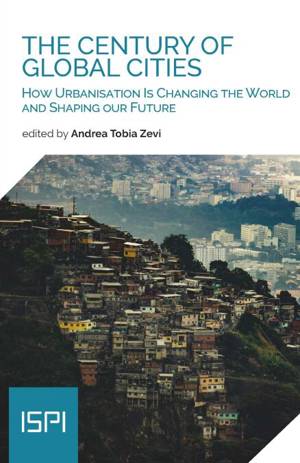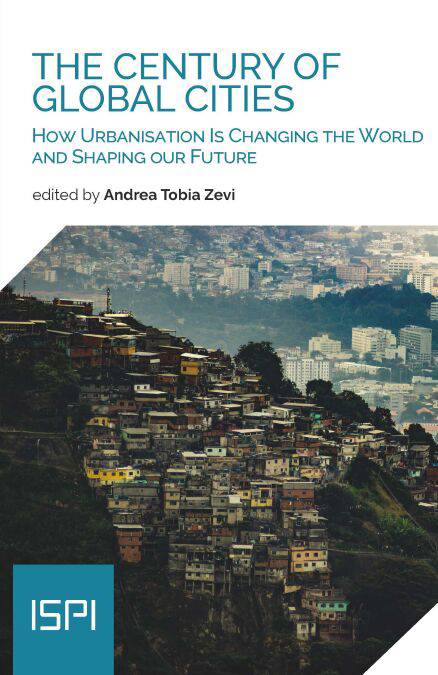
- Afhalen na 1 uur in een winkel met voorraad
- Gratis thuislevering in België vanaf € 30
- Ruim aanbod met 7 miljoen producten
- Afhalen na 1 uur in een winkel met voorraad
- Gratis thuislevering in België vanaf € 30
- Ruim aanbod met 7 miljoen producten
Zoeken
The Century of Global Cities E-BOOK
How Urbanisation Is Changing the World and Shaping our Future
Andrea Tobia Zevi
E-book | Engels
€ 6,99
+ 6 punten
Uitvoering
Omschrijving
Cities are gaining importance and influence worldwide.
They sustain the global economy, set cultural trends, produce greenhouse gas emissions and consume energy; they attract migration flows and foster new political waves. While cities were supposed to be declining back in the 1980s, the globalised economy has established them as crucial world hubs leading billions of people on every continent, both at the top and the bottom of the social ladder, to move to cities. Today, global cities cry out for a more prominent role. But why and to what extent do they matter? Can they really stand alone in the global arena? How are they interacting with governments and multilateral organisations? From climate change to connectivity, from inequalities to migration: what is their contribution to key global challenges?
They sustain the global economy, set cultural trends, produce greenhouse gas emissions and consume energy; they attract migration flows and foster new political waves. While cities were supposed to be declining back in the 1980s, the globalised economy has established them as crucial world hubs leading billions of people on every continent, both at the top and the bottom of the social ladder, to move to cities. Today, global cities cry out for a more prominent role. But why and to what extent do they matter? Can they really stand alone in the global arena? How are they interacting with governments and multilateral organisations? From climate change to connectivity, from inequalities to migration: what is their contribution to key global challenges?
Specificaties
Betrokkenen
- Auteur(s):
- Uitgeverij:
Inhoud
- Aantal bladzijden:
- 156
- Taal:
- Engels
Eigenschappen
- Productcode (EAN):
- 9788855260909
- Verschijningsdatum:
- 11/01/2020
- Uitvoering:
- E-book
- Beveiligd met:
- Digital watermarking
- Formaat:
- ePub

Alleen bij Standaard Boekhandel
+ 6 punten op je klantenkaart van Standaard Boekhandel
Beoordelingen
We publiceren alleen reviews die voldoen aan de voorwaarden voor reviews. Bekijk onze voorwaarden voor reviews.











